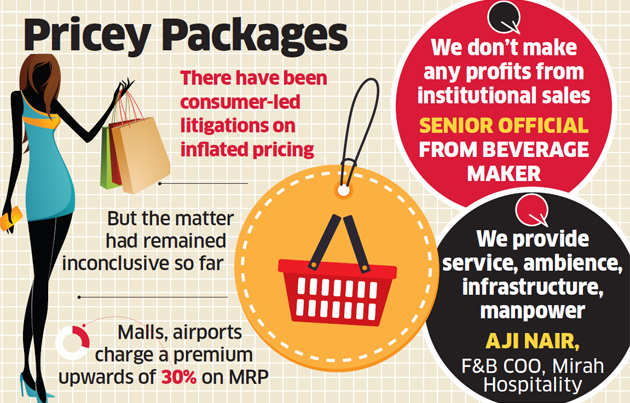“The industry has taken this up with the ministry. We have written to them explaining our stand. In case needed, we will take this up in court,” said Riyaaz Amlani, president of NRAI, which represents hundreds of restaurants.
The consumer affairs ministry said last month that the practice of differential pricing of similar packaged products would not be allowed starting January next year. Although there has been consumer-led litigation against inflated or differential pricing at restaurants, hotels, malls, airports and other institutions, the matter has remained by and large inconclusive so far.
“At a restaurant, we are not selling a product, we are selling a service. The consumer doesn’t walk into a fine dining restaurant just to buy a cola can at the counter. The consumer is served a meal and he is paying for the full service,” said Amlani, who is also chief executive at Impresario Entertainment & Hospitality, which operates restaurants Saltwater Grill, Smoke House Deli and Social.
“What is needed are specific guidelines to balance the interests of both consumers and commercial interests of institutions,” Delhi High Court advocate Ajay Tejpal said. “This is an evolving matter and has been ambiguous so far.”
An amendment to the Legal Metrology (Packaged Commodities) Rules, 2011, prohibits the declaration of different maximum retail prices (dual MRPs) on identical pre-packaged commodities, unless allowed by law. This comes into effect January 1, 2018.
“The notification by the concerned ministry needs more clarity,” said a top official representing real estate giant DLF, which operates several malls. “We do not charge for a product, but for the overall service as a package.” Some entities procure packaged products with a higher printed MRP while others are said to charge a premium upwards of 30% on the MRP — whether it is a pack of snacks, a bottle of water or a beverage can.

“We don’t make any profits from institutional sales,” said a senior official representing a beverage maker. “The mark-up in pricing is done by the institution.”
“Very often, restaurants in malls, for example, have a revenue-sharing arrangement with malls they are located in, on all on-premise sales. Besides, we don’t just sell a product — we provide service, ambience, infrastructure, manpower. All of that has to be factored in,” said Aji Nair, chief operating officer (F&B Division) at Mirah Hospitality & Gourmet Solutions, which runs outlets Falafel’s, Rajdhani, United Sports Bar & Grill and Cafe Mangii.
Anotification by Ministry of Consumer Affairs, Food & Public Distribution states the maximum retail price of all packaged goods should indicate that it is inclusive of all taxes and the price should be rounded off to nearest rupee or 50 paise.







